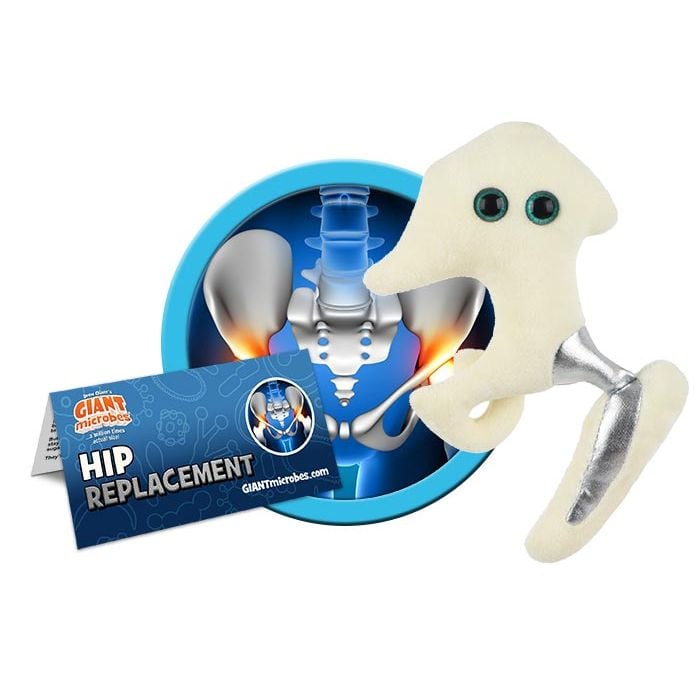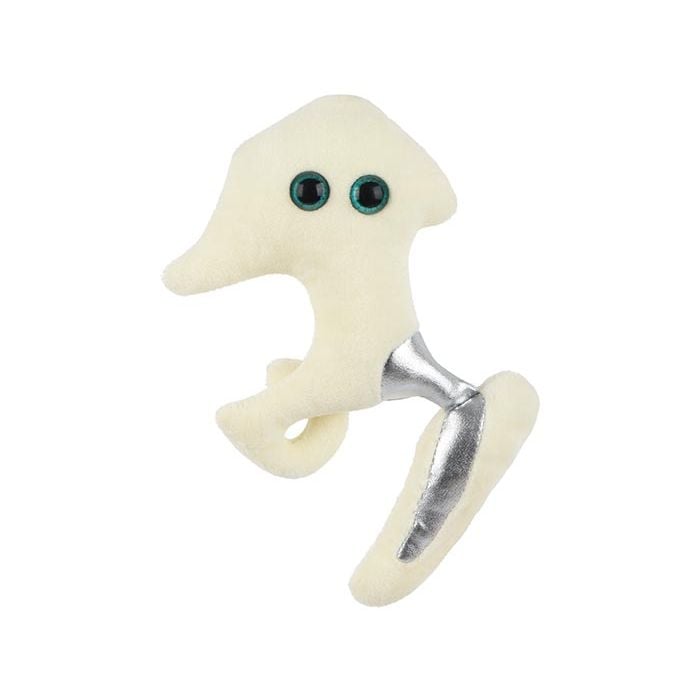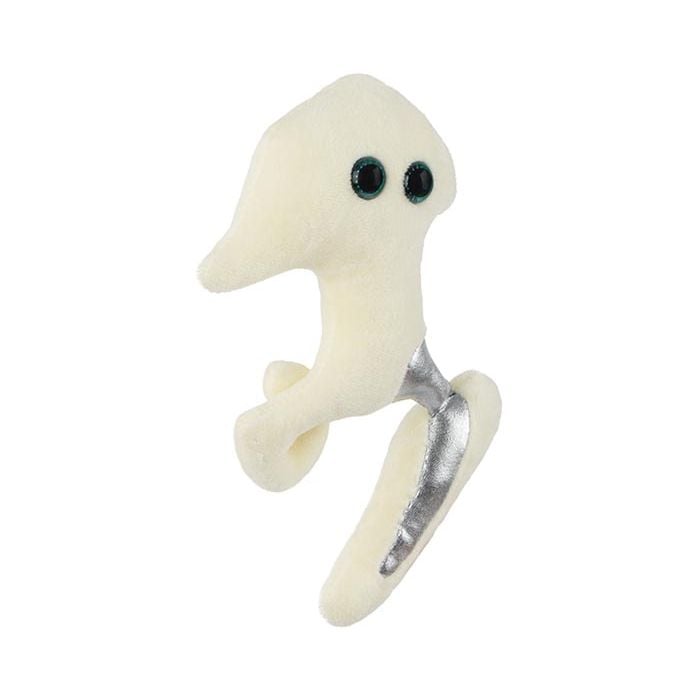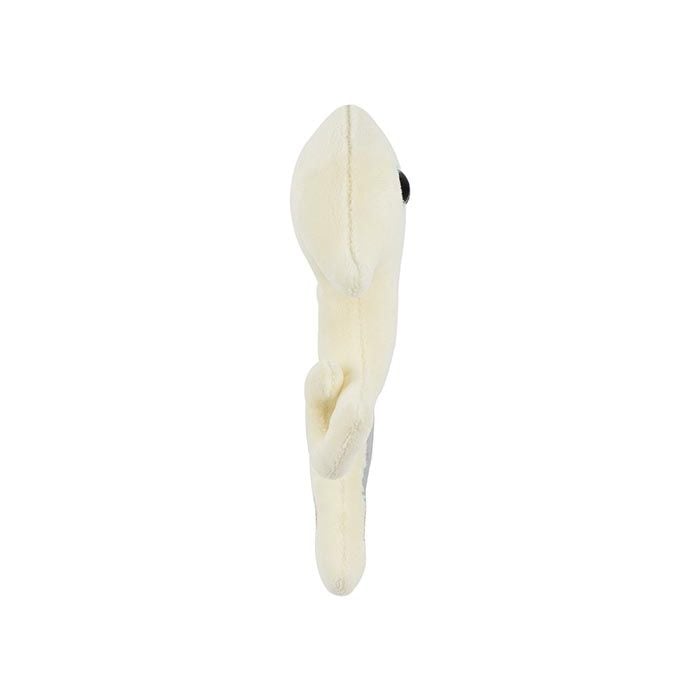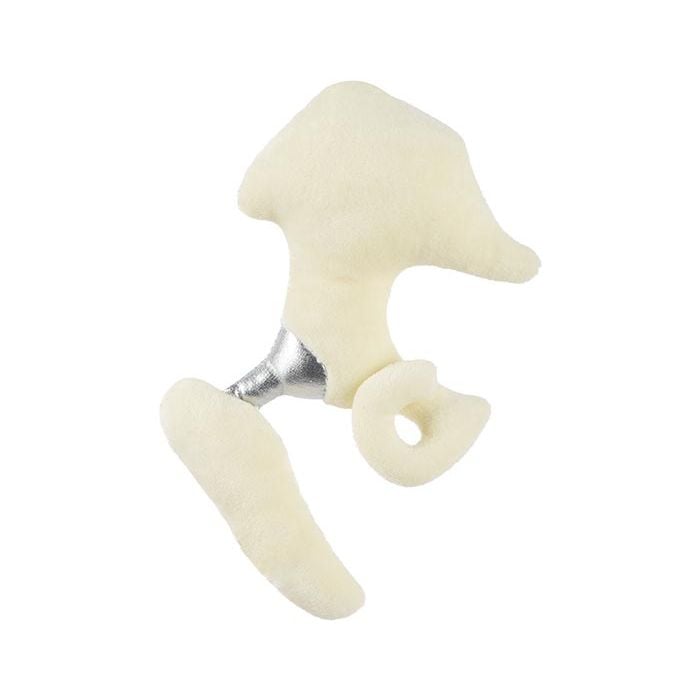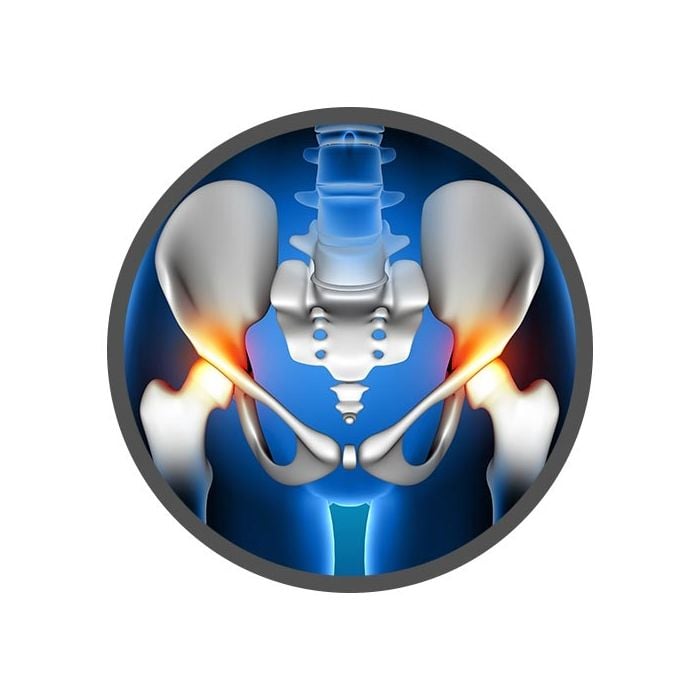Hip Replacement
Product Details
Additional Information
| Sizes | Giantmicrobes are based on actual microbes, cells, organisms and other critters, only 1,000,000 times actual size! Gigantic (GG) 40-60cm XL (XL) 25-38cm Original (PD) 12-20cm Keychain (KC) 5-10cm with clip |
|---|---|
| Materials | Plush from all new materials. Stuffed with polyester fiber fill. Surface washable: sponge with water & soap, air dry. |
| Packaging | Each plush microbe includes a printed card with fun, educational and fascinating facts about the actual microbe or cell. |
| Safety | Every product meets or exceeds U.S. and European standards for safety. For ages 3 and up. |
All about Hip Replacement
FACTS: Hip replacements are the most common type of arthroplasty, or joint replacement, and one of the most successful operations in medicine. The numbers have skyrocketed with nearly 1.5 million undergoing the procedure worldwide. The rapid evolution of joint replacement technology has greatly increased their effectiveness and has reduced recovery times.
The hip is a large ball-and-socket joint. The socket is part of the large pelvis bone. The ball is the upper end of the femur, or thighbone. Cartilage provides cushioning, the synovial membrane lubricates the joint and ligaments give stability.
No matter your age, it is hip to repair your hips when they are damaged due to accident, fracture or disease that causes pain and loss of mobility. Osteoporosis and arthritis can lead to hip problems. Osteoporosis is a chronic, progressive disease of increasingly fragile bones that can break from minor falls. Osteoarthritis occurs when joint cartilage deteriorates from wear and tear. Rheumatoid arthritis is an autoimmune disease in which the body attacks itself. With either type of arthritis, bones may rub against each other, leading to swelling, stiffness and pain.
In a total hip replacement, the damaged bone and cartilage are replaced with prosthetic components. A metal stem fits into the femoral head. A metal or ceramic ball goes on the upper part of this stem. The damaged cartilage surface of the socket is replaced with a metal socket screwed or cemented into place. A spacer allows for a smooth gliding surface. In less than 2 months of recovery time, most patients will be back in action, walking and shaking their hips pain free.









